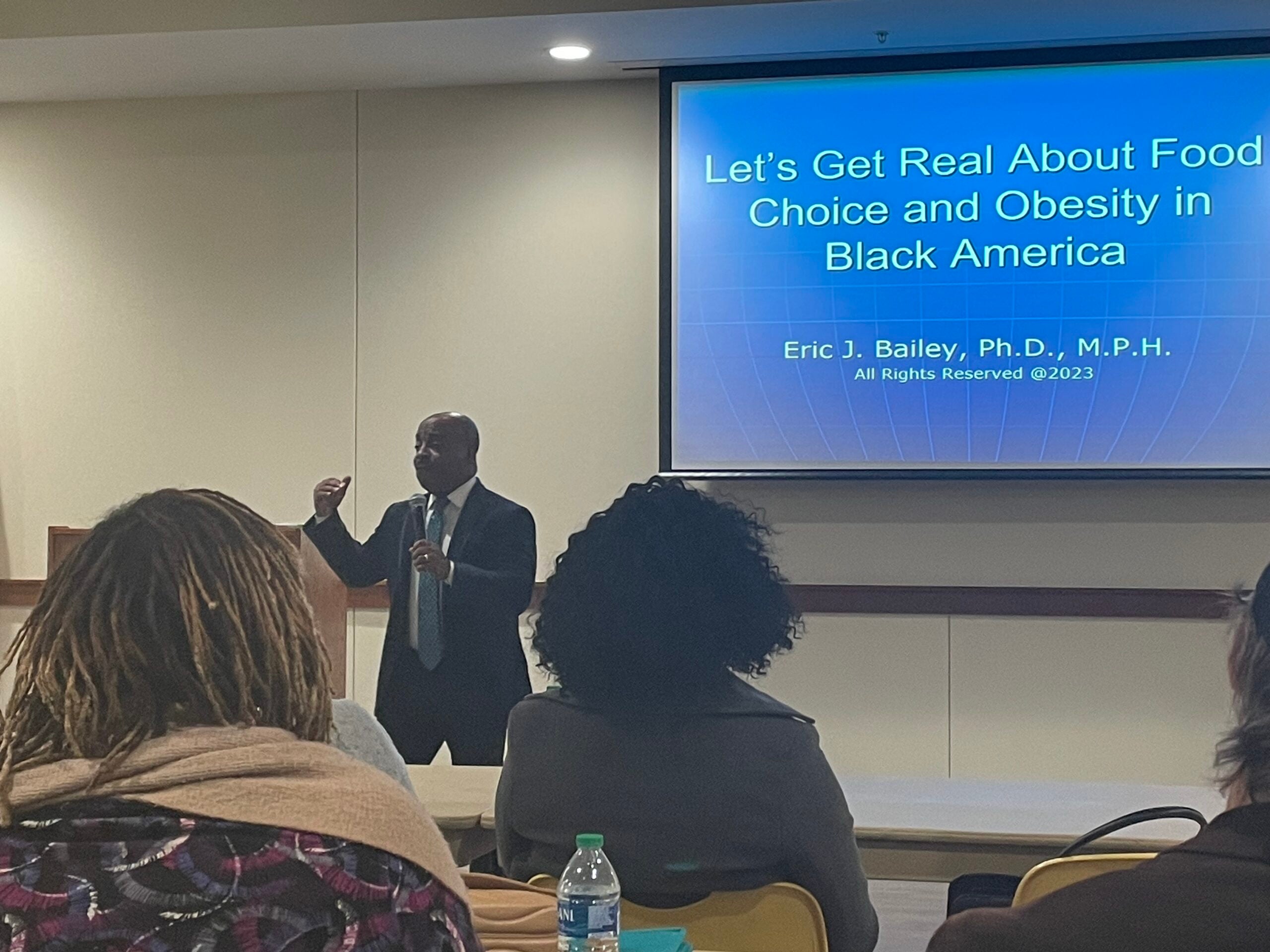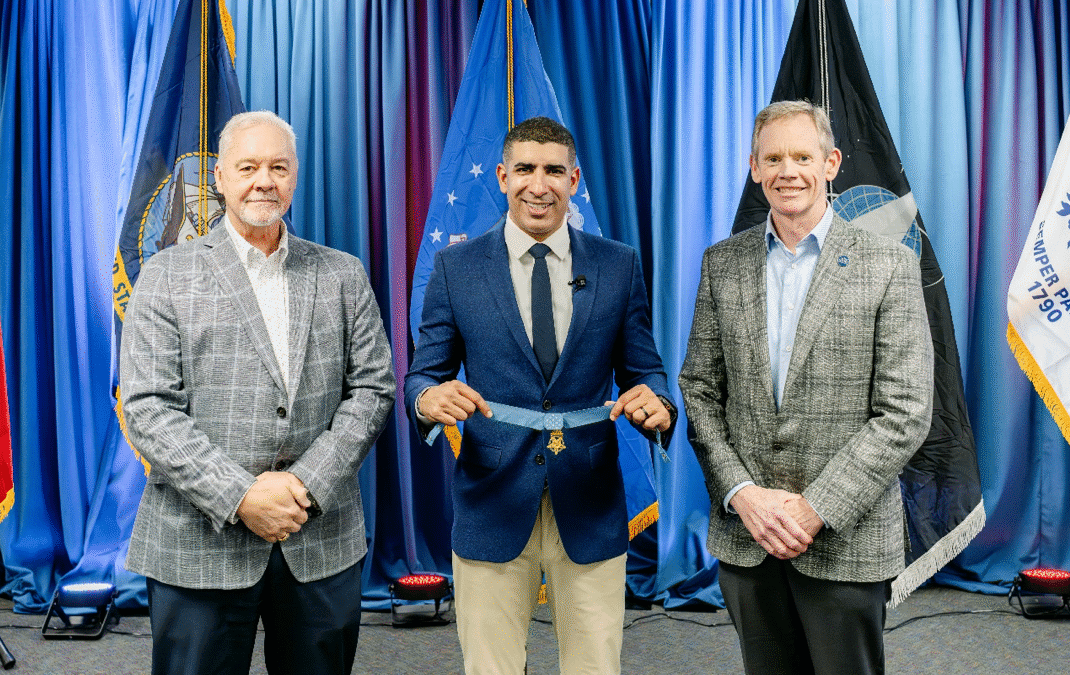Medical anthropologist Eric Bailey, visiting as a guest lecturer at Augusta University, spoke at the Augusta-Richmond County Library, Thursday evening, in a community health presentation sponsored by AU’s Pamplin College of Arts, Humanities and Social Sciences and Institute of Public and Preventive Health.
His talk, titled “Let’s Get Serious About Food Choice & Obesity in Black America,” explored the implications of health data about Black folk and other minorities in the U.S.
Drawing from two textbooks he authored, “Food Choice and Obesity in Black America: Creating a Cultural Diet,” and “Medical Anthropology and African American Health,” Bailey underscored the significance of social and cultural differences when analyzing differences and inequalities in health outcomes and food choices among various groups in the country.
“You cannot do this type of research without acknowledging the struggle of so many folks,” said Bailey. “This is an issue that is very important to me, and because it touches home, this is not something that I’ve done in a distant way. It touches home, it touches me.”
The visiting professor set up the seminar by talking about his background, which included volunteering for several years in the hypertension clinic at the Henry Ford Hospital in Detroit during the 1980s, and conducting field research while participating in a health fair in southwest Indiana.
“I felt I had received more education, at times, working as a volunteer and listening to folks of all walks of life and how they struggled to adhere to the doctors’ prescribed regimen,” Bailey said, noting his observation that these discrepancies often led to nurse practitioners and physicians blaming patients for their various conditions. “They didn’t spend enough time understanding that the patient was struggling just to make ends meet, and getting that prescription was not on the top 10 of their priorities.”
Bailey, who has conducted research for the CDC and, from 1999 to 2004 was Health Scientist Administrator for the National Institute of Health, also drew from the “Report of the Secretary’s Task Force on Black and Minority Health,” published in 1985 and commissioned by Margaret Heckler, then the Secretary of the Dept. of Health and Human Services.
The report, Bailey noted, documented significant strides for Americans overall, including increased life expectancy and declining infant mortality; but also showed great disparity with death and illness experienced by Black people and other minority Americans as compared with our nation’s population as a whole.
Drawing also from the 2011 CDC Health Disparities and Inequalities Report, Bailey noted that racial and ethnic minorities have significantly worse access to health care, are more likely to be uninsured, receive a lower quality of care and more likely to experience communication problems with their healthcare providers than non-minorities.
The professor also explicated upon an overall project to help healthcare providers improve care for minorities in these areas, centered around cultural competence — and skills.
One example of the latter Bailey gave was his “Food Choice” book, which focused on developing a diet and exercise regiment that takes African American cultural values into consideration, but can be implemented by individual of any ethnicity.
Skyler Q. Andrews is a staff reporter for The Augusta Press. Reach him at skyler@theaugustapress.com.









